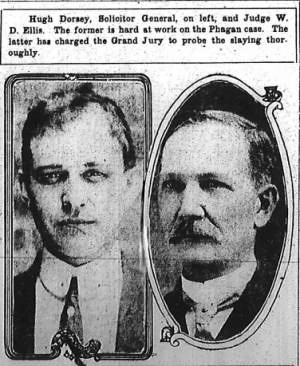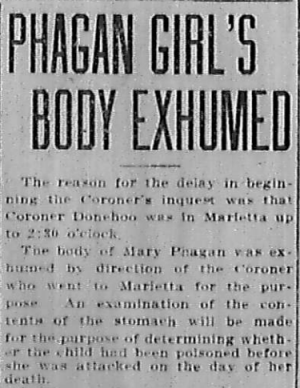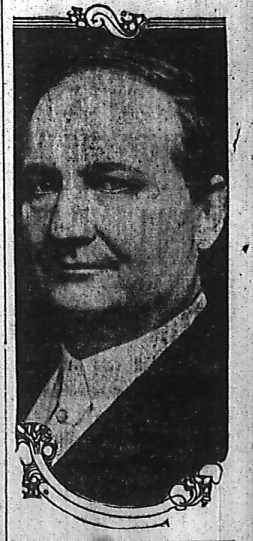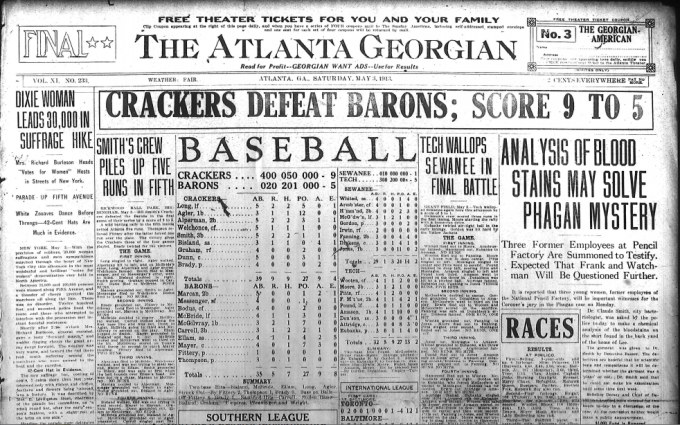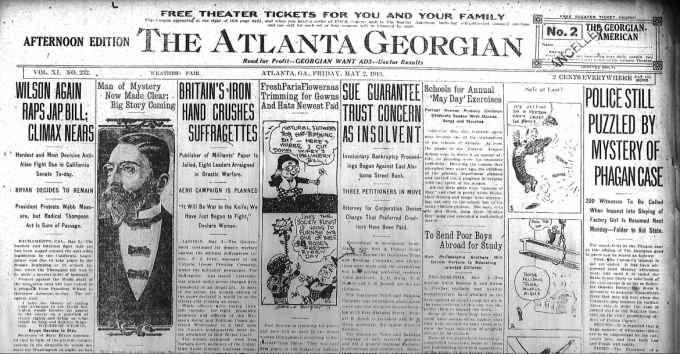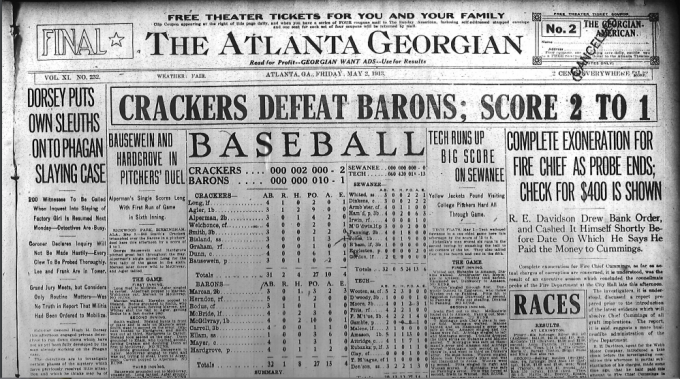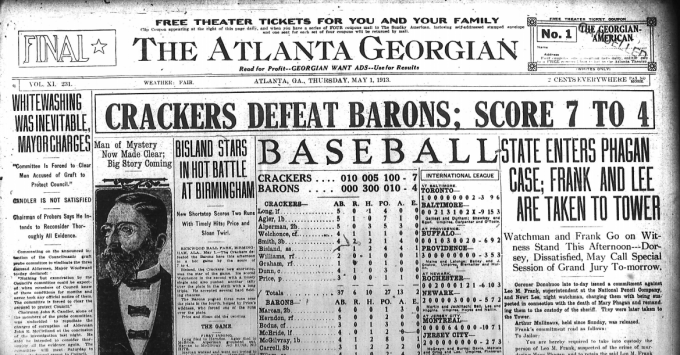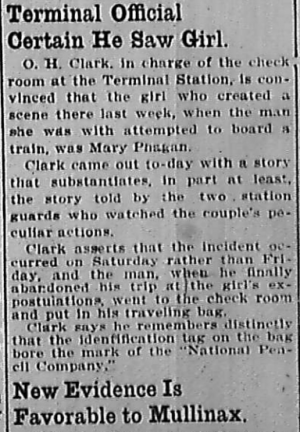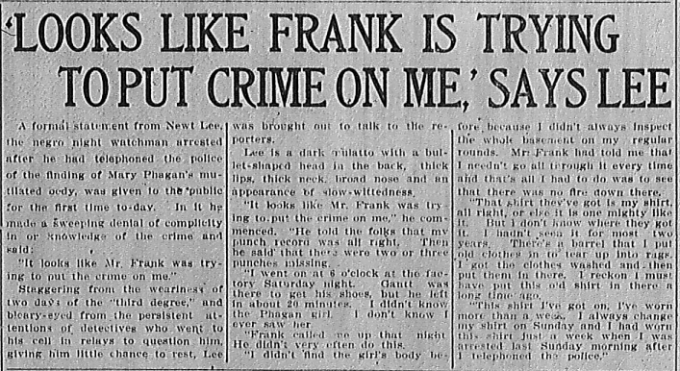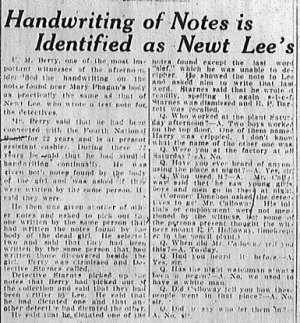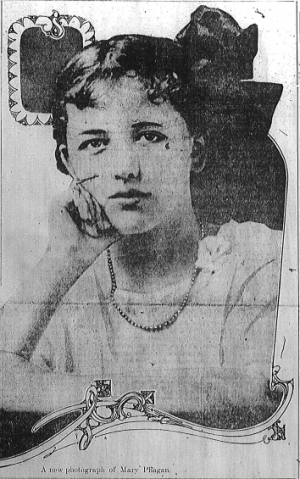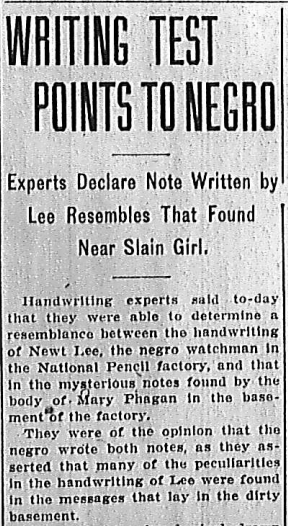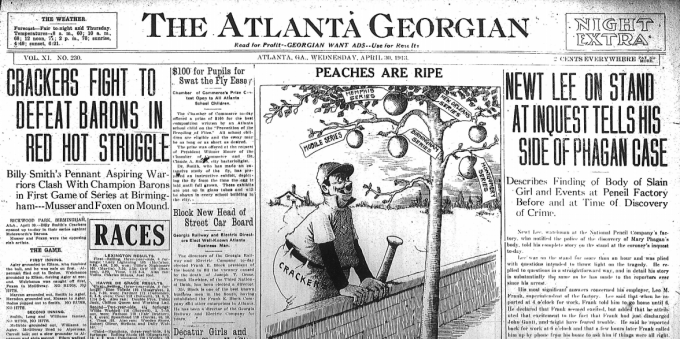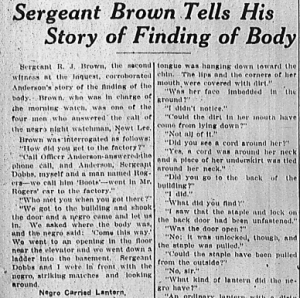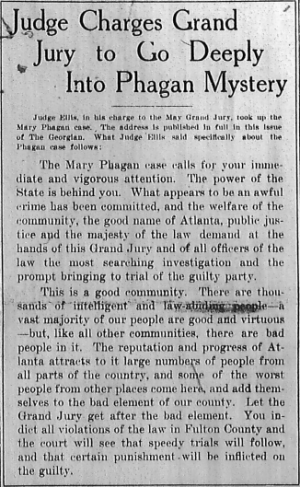 Another in our series of new transcriptions of contemporary articles on the Leo Frank case.
Another in our series of new transcriptions of contemporary articles on the Leo Frank case.
Atlanta Georgian
Monday, May 5th, 1913
Judge Ellis, in his charge to the May Grand Jury, took up the Mary Phagan case. The address is published in full in this issue of The Georgian. What Judge Ellis said specifically about the Phagan case follows:
The Mary Phagan case calls for your immediate and vigorous attention. The power of the State is behind you. What appears to be an awful crime has been committed, and the welfare of the community, the good name of Atlanta, public justice and the majesty of the law demand at the hands of this Grand Jury and of all officers of the law the most searching investigation and the prompt bringing to trial of the guilty party.
This is a good community. There are thousands of intelligent and law-abiding people—a vast majority of our people are good and virtuous—but, like all other communities, there are bad people in it. The reputation and progress of Atlanta attracts to it large numbers of people from all parts of the country, and some of the worst people from other places come here, and add themselves to the bad element of our county. Let the Grand Jury get after the bad element. You indict all violations of the law in Fulton County and the court will see that speedy trials will follow, and that certain punishment will be inflicted on the guilty.
* * *
Atlanta Georgian, May 5th 1913, “Judge Charges Grand Jury to Go Deeply Into Phagan Mystery,” Leo Frank case newspaper article series (Original PDF)

